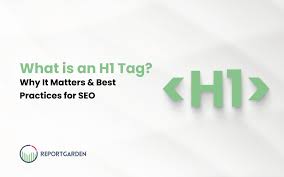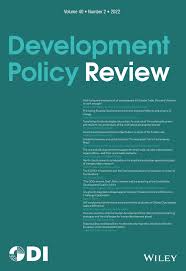The Importance of SEO H1 Tags in Optimizing Your Website
When it comes to optimizing your website for search engines, one crucial element that should not be overlooked is the proper use of H1 tags. SEO H1 tags play a significant role in helping search engines understand the content and structure of your web pages, ultimately improving your site’s visibility and ranking in search results.
What are SEO H1 Tags?
In HTML, the H1 tag is used to define the main heading or title of a webpage. Search engines like Google consider the text within the H1 tag as one of the most important elements on a page, signaling what the page is about and providing valuable information to both search engines and visitors.
Key Benefits of Using SEO H1 Tags:
- Improved Readability: By using descriptive and relevant keywords in your H1 tags, you make it easier for visitors to understand the main topic of your page at a glance.
- Enhanced SEO Performance: Search engines use H1 tags to determine the context and relevance of your content. Including targeted keywords in your H1 tags can help improve your site’s ranking for those specific keywords.
- Structural Organization: Properly structured headings (H1-H6) help search engines understand the hierarchy and flow of content on your page, making it easier for them to index and rank your site accurately.
- User Experience: Clear and concise headings not only benefit search engines but also enhance the user experience by guiding visitors through your content and making it more scannable.
Best Practices for Using SEO H1 Tags:
- Use Only One H1 Tag Per Page: Each webpage should have only one main heading (H1) that accurately reflects the primary topic or keyword focus of that page.
- Make It Relevant: Ensure that your H1 tag is directly related to the content on the page and contains relevant keywords that align with user search intent.
- Avoid Keyword Stuffing: While it’s important to include keywords in your H1 tag, avoid overusing them unnaturally. Focus on creating meaningful and engaging headings for both users and search engines.
In conclusion, optimizing your website with well-crafted SEO H1 tags can have a significant impact on your site’s search engine visibility, organic traffic, and overall performance. By following best practices and incorporating targeted keywords strategically, you can effectively communicate the relevance of your content to both users and search engines, ultimately boosting your online presence. Remember, when it comes to SEO success, every heading counts!
7 Benefits of SEO H1: Boosting Visibility, Engagement, and Traffic
- 1. Enhances website visibility in search engine results pages (SERPs)
- 2. Improves keyword targeting and relevance for better SEO performance
- 3. Provides clear and structured content hierarchy for both users and search engines
- 4. Increases user engagement by offering concise and informative page titles
- 5. Helps search engines understand the main topic of each webpage more effectively
- 6. Contributes to a better user experience through organized and scannable content
- 7. Boosts organic traffic by signaling the importance of key topics on your website
Understanding the Pitfalls of SEO: The Cons of H1 Tag Misuse
1. Enhances website visibility in search engine results pages (SERPs)
Utilizing SEO H1 tags effectively can significantly enhance a website’s visibility in search engine results pages (SERPs). By incorporating relevant keywords and descriptive headings within H1 tags, websites can signal to search engines the main focus and context of their content. This optimization strategy helps search engines better understand and index the website’s pages, increasing the likelihood of appearing higher in organic search results. Ultimately, by improving website visibility in SERPs through SEO H1 tags, businesses can attract more organic traffic and reach a broader audience online.
2. Improves keyword targeting and relevance for better SEO performance
Utilizing SEO H1 tags effectively improves keyword targeting and relevance, leading to enhanced SEO performance. By incorporating relevant keywords into the main heading of a webpage, you signal to search engines the primary focus of your content. This strategic use of keywords in H1 tags helps search engines understand the context of your page, increasing its visibility and ranking for targeted search queries. Ultimately, by aligning your H1 tags with specific keywords related to your content, you can boost your site’s overall SEO performance and attract more organic traffic from users searching for relevant information.
3. Provides clear and structured content hierarchy for both users and search engines
One of the key benefits of utilizing SEO H1 tags is that they provide a clear and structured content hierarchy for both users and search engines. By incorporating descriptive and relevant headings, websites can effectively organize their content, making it easier for visitors to navigate and understand the information presented. This structured approach not only enhances user experience by guiding users through the page but also assists search engines in comprehending the context and relevance of the content, leading to improved indexing and ranking of the site’s pages.
4. Increases user engagement by offering concise and informative page titles
By utilizing SEO H1 tags effectively, websites can enhance user engagement by providing concise and informative page titles. When users land on a webpage, the H1 tag serves as a clear indicator of the content they can expect to find, helping them quickly assess if the page aligns with their interests or needs. This concise and relevant heading not only improves user experience by guiding visitors through the content but also encourages them to stay on the page longer, increasing the likelihood of further exploration and interaction with the site’s offerings.
5. Helps search engines understand the main topic of each webpage more effectively
Utilizing SEO H1 tags helps search engines comprehend the primary subject matter of each webpage more effectively. By incorporating relevant keywords and descriptive content within the H1 tag, search engines can quickly identify and categorize the main theme of the page, leading to improved indexing and ranking in search results. This clear indication of the main topic enhances the overall visibility and relevance of the webpage, making it easier for users to find valuable information that aligns with their search queries.
6. Contributes to a better user experience through organized and scannable content
Utilizing SEO H1 tags contributes to a better user experience by organizing content in a structured manner that is easy to scan and comprehend. Clear and descriptive headings provided by H1 tags help visitors quickly grasp the main topics of a webpage, allowing them to navigate through the content more efficiently. This organized approach not only enhances user engagement but also improves overall readability, making it simpler for users to find the information they are seeking.
7. Boosts organic traffic by signaling the importance of key topics on your website
Utilizing SEO H1 tags effectively can significantly boost organic traffic to your website by signaling the importance of key topics. By strategically incorporating relevant keywords and descriptive headings within your H1 tags, search engines are better able to understand the main focus of your content. This clear indication of key topics not only improves search engine visibility but also attracts more targeted traffic to your site, increasing the likelihood of reaching and engaging with users who are actively seeking information related to your offerings. Ultimately, by emphasizing essential topics through SEO H1 tags, you can enhance your website’s relevance and authority in the eyes of both search engines and potential visitors, leading to a notable increase in organic traffic over time.
Overemphasis on H1 Tags
An important drawback of overemphasizing SEO H1 tags is the risk of neglecting other critical SEO factors that contribute to a website’s overall performance. While H1 tags play a significant role in signaling the main topic of a webpage to search engines, excessive focus on optimizing H1 tags may divert attention from equally vital elements like creating high-quality content and building authoritative backlinks. It is essential to maintain a balanced approach to SEO optimization, ensuring that all aspects work harmoniously to enhance the overall visibility and relevance of your website in search engine results.
Keyword Stuffing
Keyword stuffing in SEO H1 tags is a detrimental practice that some website owners engage in to manipulate search engine rankings. By excessively cramming keywords into the main heading of a webpage, not only does it compromise the quality and readability of the content, but it also creates a poor user experience. Visitors may find the content spammy or irrelevant, leading to increased bounce rates and decreased engagement. Moreover, search engines like Google penalize websites that engage in keyword stuffing, potentially causing a drop in rankings and visibility. It is essential for website owners to prioritize user-centric content over keyword manipulation to maintain a positive online presence and uphold SEO best practices.
Limited Impact
One notable drawback of SEO H1 tags is their limited impact on search rankings when considered in isolation. While H1 tags play a crucial role in signaling the main topic of a webpage to search engines, their effectiveness can be diminished if other essential SEO elements are missing or if the overall content quality is poor. In such cases, simply optimizing H1 tags may not suffice to improve search rankings significantly. It is essential for website owners and content creators to address all aspects of SEO comprehensively, ensuring that H1 tags are part of a well-rounded optimization strategy that includes high-quality content, relevant keywords, proper metadata, and a user-friendly experience to maximize the impact on search engine visibility and ranking performance.
Inconsistent Use
Inconsistent use of H1 tags across web pages can pose a significant con in SEO optimization. When H1 tags are inconsistently applied or used in an irrelevant manner, it can lead to confusion for search engines trying to understand the content and structure of your website. This inconsistency may result in diluted keyword relevance, making it harder for search engines to accurately index and rank your pages. Ultimately, this inconsistency diminishes the overall effectiveness of your SEO efforts, potentially impacting your site’s visibility and ranking in search results. Consistency and relevance in utilizing H1 tags are key factors in ensuring that search engines properly interpret and prioritize your content for optimal SEO performance.




